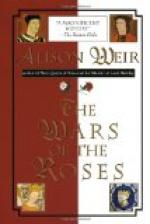The Duke of Clarence, who had been one of the first to strike him, fell a victim to the displeasure of the king, his brother, and was secretly put to death in the Tower. Although Edward himself died a natural death, it was said that vexation at the failure of some of his most treasured schemes for the advancement of his children cut him off in the flower of his age. And a darker fate befell his own young sons than he had inflicted upon the son of the rival monarch: for Edward of Lancaster had died a soldier’s death, openly slain by the sword in the light of day; whilst the murderer’s children were done to death between the stone walls of a prison, and for years their fate was shrouded in terrible mystery.
The next death in that ill-omened race was that of King Richard’s own son, in the tenth year of his age. As Duke of Gloucester, he had stood by to see the death of young Edward, even if his hand had not been raised to strike him. He had then forced into reluctant wedlock with himself the betrothed bride of the murdered prince—the unhappy Lady Anne. He had murdered his brother’s children to raise himself to the throne, and had committed many other crimes to maintain himself thereon; and his own son—another Edward, Prince of Wales—was doomed to meet a sudden death, called by the chroniclers of the time “unhappy,” as though some strange or painful circumstance attached to it, in the absence of both his parents: and lastly, the lonely monarch, wifeless and childless, was called upon to reap the fruits of the bitter hostility and distrust which his cruel and arbitrary rule had awakened in the breasts of his own nobles and of his subjects in general.
Paul Stukely, now a married man with children of his own growing up about him, watched with intense interest the course of public events; and when Henry of Richmond—a lineal descendant of Edward the Third by his son John of Gaunt—landed for the second time to head the insurrection against the bloody tyrant, Sir Paul Stukely and a gallant little following marched amongst the first to join his standard, and upon the bloody field of Bosworth, Paul felt that he saw revenged to the full the tragedy of Tewkesbury.
He was there, close beside Henry Tudor, when the last frantic charge of the wretched monarch in his despair was made, and when Richard, after unhorsing many amongst Henry’s personal attendants in order to come to a hand-to-hand combat with his foe, witnessed the secession from his ranks of Sir William Stanley, and fell, crying “Treason, treason!” with his last breath. He who had obtained his crown by treachery, cruelty, and treason of the blackest kind, was destined to fall a victim to the treachery of others. As Paul saw the mangled corpse flung across a horse’s back and carried ignominiously from the field, he felt that the God of heaven did indeed look down and visit with His vengeance those who had set at nought His laws, and that in the miserable death of this last son of the House of York the cause of the Red Rose was amply avenged.




